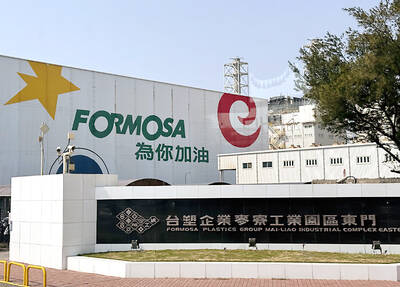ProMOS Technologies Inc (茂德科技), the nation’s third-biggest computer memory chipmaker, yesterday said more than half of its investors agreed to sell back the company’s convertible bonds at a deep discount, or not to exercise their “put” option as of March 3.
The debt-ridden chip company has offered to buy back US$335 million in outstanding corporate bonds for as little as 10 percent of their face value as it could not raise enough cash to make a full payment.
ProMOS only has NT$3 billion (US$88 million) in bank loans to repay the debt.
To clinch the deal, ProMOS had extended its early bird deadline to yesterday from March 2, which allows bond holders to an extra 20 percent premium on the face value.
ProMOS will have to pay the debt on Saturday following an extension on Feb. 14 for the overseas convertible bonds issued on Feb. 14, 2007. Bond holders are allowed to redeem their investment on the second anniversary.
The tender fails if ProMOS is unable to obtain agreement to the discount payment from 79 percent of the bond holders, a company statement said.
Shares of ProMOS fell 5.88 percent to NT$0.8 yesterday ahead of the tender deadline.
Meanwhile, ProMOS may face difficulty in obtaining the newly approved NT$3 billion in bank loans after chairman Chen Min-liang (陳民良) said he would like to change his guarantor status, bank officials said last week.
Separately, Nanya Technology Corp (南亞科技), the nation’s second-largest computer memory chipmaker, yesterday said the company’s board had not discussed the proposal of eliminating 30 percent of its outstanding shares as local media reported. Nanya has 4.69 billion shares.
The Chinese-language Economic Daily News yesterday said that Nanya’s parent company, Formosa Plastics Group (台塑集團), was considering a 30 percent reduction in outstanding shares to boost Nanya’s net value.
After the capital reduction, Formosa Plastics would invest additional funds in Nanya, the newspaper said, citing unnamed sources.
Nanya’s net value plunged to NT$6.1 per share at the end of last year.

EXTRATERRITORIAL REACH: China extended its legal jurisdiction to ban some dual-use goods of Chinese origin from being sold to the US, even by third countries Beijing has set out to extend its domestic laws across international borders with a ban on selling some goods to the US that applies to companies both inside and outside China. The new export control rules are China’s first attempt to replicate the extraterritorial reach of US and European sanctions by covering Chinese products or goods with Chinese parts in them. In an announcement this week, China declared it is banning the sale of dual-use items to the US military and also the export to the US of materials such as gallium and germanium. Companies and people overseas would be subject to

Taiwan Semiconductor Manufacturing Co (TSMC, 台積電) founder Morris Chang (張忠謀) yesterday said that Intel Corp would find itself in the same predicament as it did four years ago if its board does not come up with a core business strategy. Chang made the remarks in response to reporters’ questions about the ailing US chipmaker, once an archrival of TSMC, during a news conference in Taipei for the launch of the second volume of his autobiography. Intel unexpectedly announced the immediate retirement of former chief executive officer Pat Gelsinger last week, ending his nearly four-year tenure and ending his attempts to revive the

WORLD DOMINATION: TSMC’s lead over second-placed Samsung has grown as the latter faces increased Chinese competition and the end of clients’ product life cycles Taiwan Semiconductor Manufacturing Co (TSMC, 台積電) retained the No. 1 title in the global pure-play wafer foundry business in the third quarter of this year, seeing its market share growing to 64.9 percent to leave South Korea’s Samsung Electronics Co, the No. 2 supplier, further behind, Taipei-based TrendForce Corp (集邦科技) said in a report. TSMC posted US$23.53 billion in sales in the July-September period, up 13.0 percent from a quarter earlier, which boosted its market share to 64.9 percent, up from 62.3 percent in the second quarter, the report issued on Monday last week showed. TSMC benefited from the debut of flagship

TENSE TIMES: Formosa Plastics sees uncertainty surrounding the incoming Trump administration in the US, geopolitical tensions and China’s faltering economy Formosa Plastics Group (台塑集團), Taiwan’s largest industrial conglomerate, yesterday posted overall revenue of NT$118.61 billion (US$3.66 billion) for last month, marking a 7.2 percent rise from October, but a 2.5 percent fall from one year earlier. The group has mixed views about its business outlook for the current quarter and beyond, as uncertainty builds over the US power transition and geopolitical tensions. Formosa Plastics Corp (台灣塑膠), a vertically integrated supplier of plastic resins and petrochemicals, reported a monthly uptick of 15.3 percent in its revenue to NT$18.15 billion, as Typhoon Kong-rey postponed partial shipments slated for October and last month, it said. The